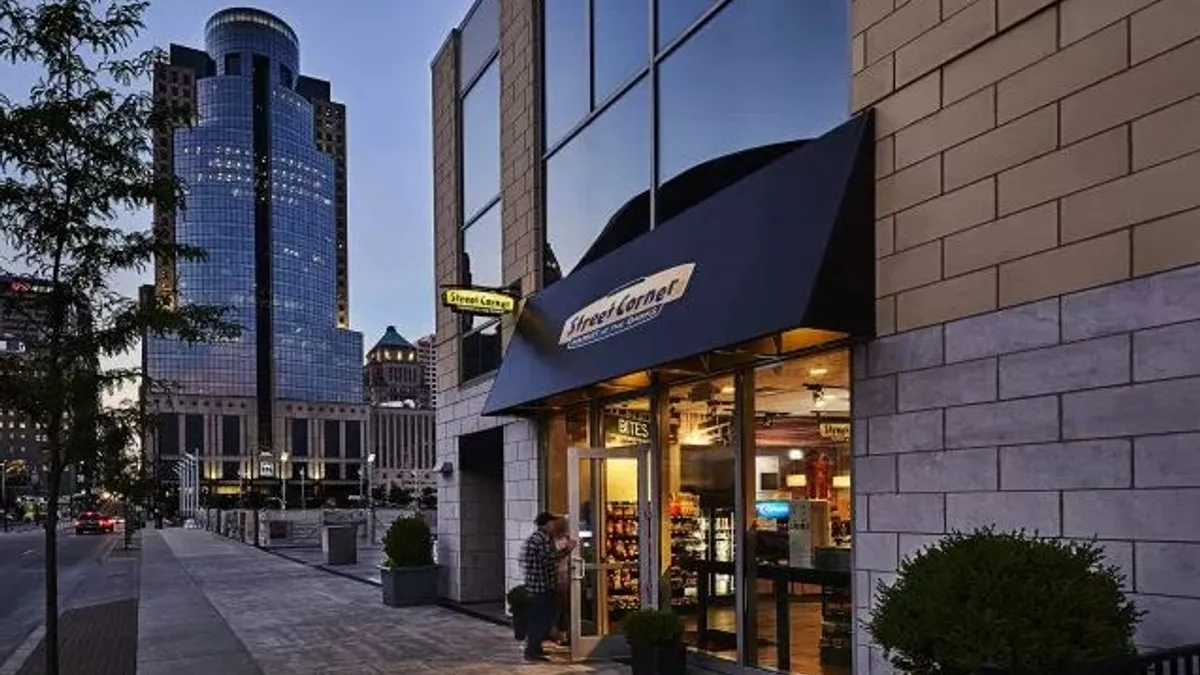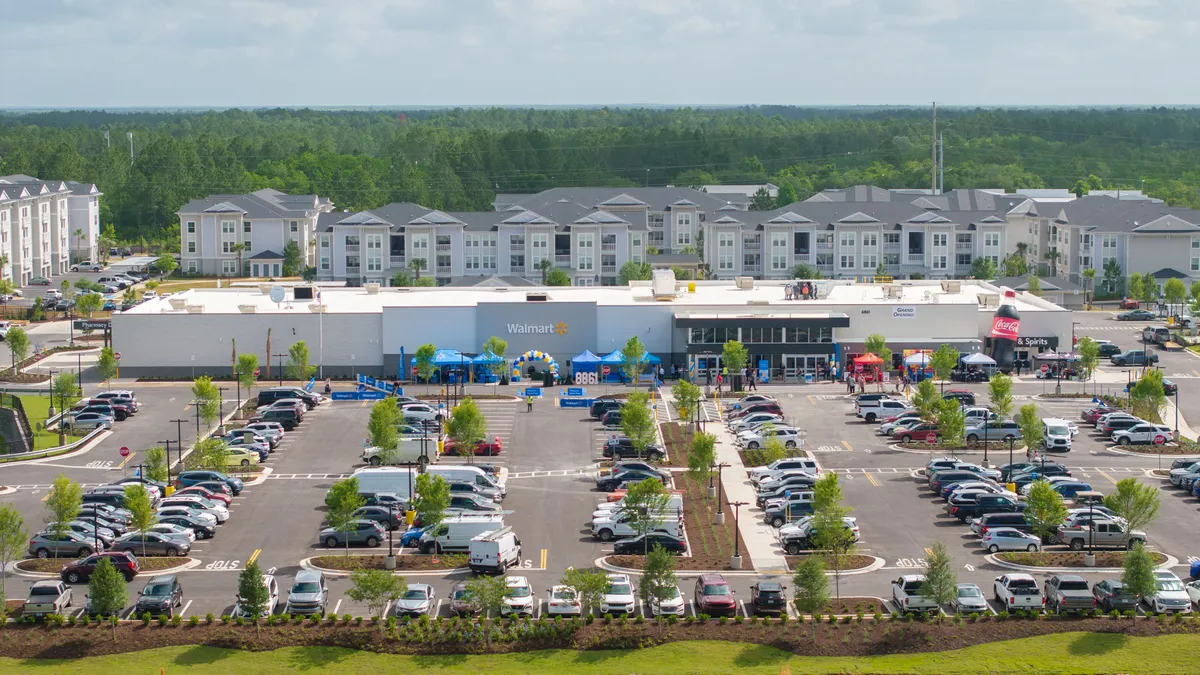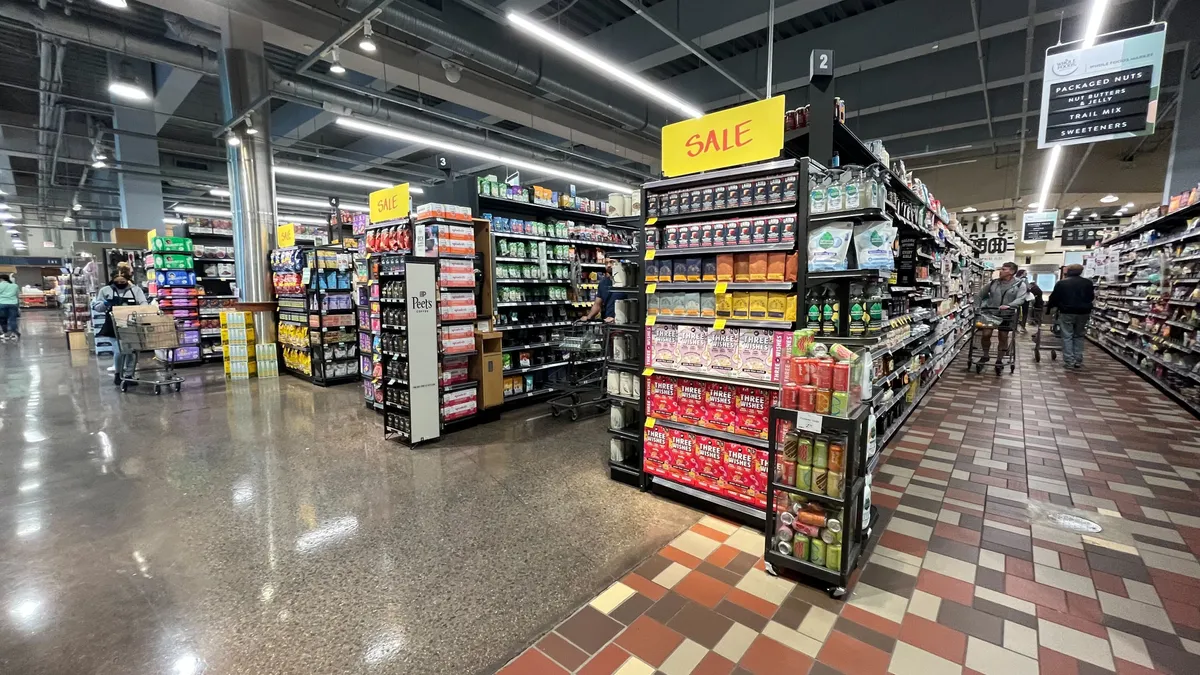Dive Brief:
- Convenience store franchise Street Corner is looking to expand a new fresh-focused concept it calls the “urban superette,” according to Convenience Store News. Company CEO Peter LaColla told the publication that the concept, which takes its name from a popular European store model, offers grocery products, consumables, prepared foods and made-to-order menu items.
- The company saw its first Street Corner Fresh Market open in downtown Chattanooga, Tennessee last August, followed by a Cincinnati location this spring. Just over a month after opening, the Cincinnati location became the company’s top-selling location.
- LaColla said the stores target millennial consumers that have increasingly moved into urban areas over the past several years. In addition to its varied food offerings, Street Corner Fresh Market also offers seating and free Wi-Fi.
Dive Insight:
Street Corner’s new concept reflects an enticing opportunity for retailers to reach high-value millennial consumers in urban markets. According to researchers at the University of California and the University of Pennsylvania, 23 of the country’s 25 largest cities have seen growth in the number of college-educated residents under age 45 since 2000. Even second-tier cities like Charleston, South Carolina; Grand Rapids, Michigan; and Madison, Wisconsin have seen significant growth. The city that leads the nation in growth of college-educated millennials since 2000, Jersey City, New Jersey, now counts one-fifth of its population as belonging to this demographic, according to Census data.
Grocery retailers have many of the fresh produce, prepared foods and other offerings that urban dwellers crave. But retailers have struggled to break into cities, where developments are costly and difficult to secure. Grocers have also struggled to adapt their formats to the urban environment. Instead of spacious stores and wide assortments, retailers often must pare down to about a quarter of their normal size and focus on fast-moving, high-margin products.
Some grocers, like Whole Foods, excel at urban retailing. Others like Target and its rapidly expanding small-format stores, are making a run at cities. Throughout the industry, retailers from Kroger to Hy-Vee and Giant Eagle are building slimmed-down hybrid stores that combine elements of c-stores and grocery locations.
Convenience operators like Street Corner, as well as dollar stores have zeroed in on the opportunity as well. Sheetz, Wawa and 7-Eleven are opening fuel-less locations with prepared foods, snacks and phone charging stations to appeal to millennial shoppers. Dollar General recently unveiled a hip new format in Nashville called DGX. At just 3,400 square feet, the reimagined dollar store offers grab-and-go sandwiches, salads, coffee and other beverages, along with a limited selection of consumables.
Small, fresh-focused stores are expanding in suburban areas and along the edges of cities, as well, all in the name of capturing the short, fill-in trips that are increasingly popular with consumers. According to research firm IRI, two-thirds of all shopping trips these days are so-called “quick trips” to snag a meal or a few fill-in groceries.
Street Corner’s development here reflects not only shifting demographics and commerce centers, but a blurring of channel lines as well. C-stores, drug stores and dollar stores are all incorporating elements of the supermarket format, while supermarkets are borrowing elements from these other channels. They’re all converging on these small, fresh-focused stores that are quickly becoming the next step in the evolution of food retailing.










